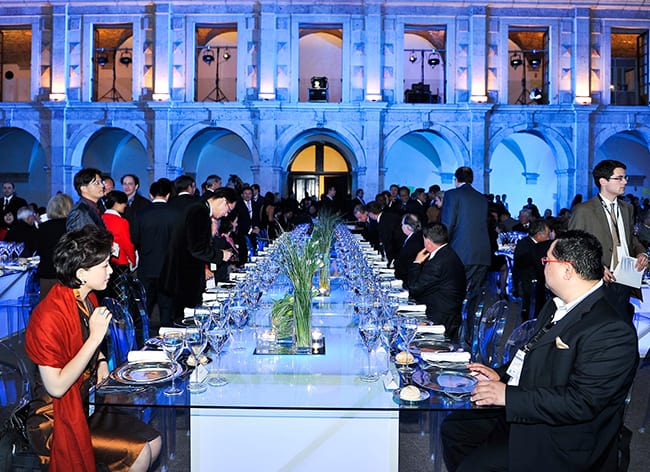
Business is all about relationships—and this is even truer in China. The word “guanxi” in Chinese means “relationship,” but it also a concept or a philosophy. Part of developing guanxi is understanding and respecting the etiquette of your Chinese colleagues.
Following are 5 tips from Chinese etiquette expert John Keating of Etiquette in China.
1) Dress—Jeans are not acceptable for business meetings, and shorts are only used for sports. Men should plan on wearing plain suits that are beige, brown or dark blue. Ties should also be conservative. Women should wear flat shoes (no high heels) and long sleeved blouses with high necklines. Revealing clothing is considered in poor taste by both Chinese men and women.
2) Greetings—If you are with a group, the most important member of the group typically enters the meeting room first. This same individual should also lead the meeting. It is not appropriate for subordinates to interrupt when the leader is speaking.
After entering the room, the most senior person on the other side should be acknowledged first. Bowing or nodding is typical, but handshakes are becoming more common. It is best to wait for the other person to extend their hand first in case a handshake is not the norm.
The polite way to address someone is to use their professional title and their surname (ex. “Director Wang”). Remember that the surname will come first when the full name is used (i.e. “Yao Ming” is “Mr. Yao”). If no professional title exists, “Mister,” “Miss,” or “Madam” will suffice. Some Chinese people also adopt a Western first name; however, first names should be only be used at the request of the other person.
3) Business Cards—You must have business cards in China. Expect to exchange them frequently, so have an abundant supply. Cards with Chinese translations on them are preferred.
When you present your own card or receive someone else’s, hold the card with both hands and ensure that the writing is right-side up for the recipient. When receiving a card, pause to look at the card before putting it down. Cards are best carried in a card case rather than a wallet or pocket. Grabbing a card with one hand and putting in a pocket without examining it will give the impression that you are not taking the exchange seriously.
4) Presentations—Presentation material should translate important topics. The Chinese will appreciate your effort. Any materials should be black and white. Colors have many subtle meanings, so they are best avoided.
5) Conversation—Just like your hopefully subtle attire, your demeanor during meetings should be equally subdued. Western enthusiasm may be looked down upon in favor of subtle strength and determination. Speak at a moderate tone and succinctly. Laugh softly. Never show anger or frustration. Relax.
The same rule applies to hand movements. The Chinese do not speak with their hands. If you do have to gesture to something such as a diagram, use your open palm rather than your index finger. Avoid fidgeting or touching your mouth.










